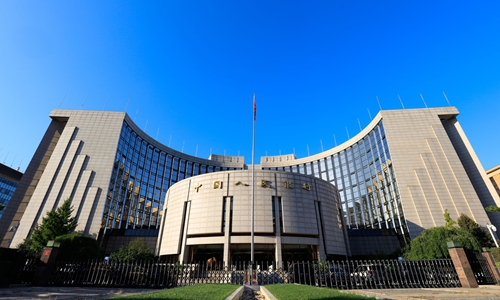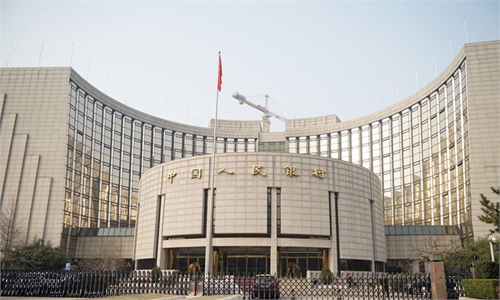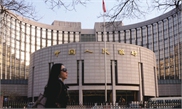Chinese central bank official signals antitrust actions against more payment firms
PBC official signals antitrust actions against more payment firms

A view of the PBC's headquarters in Beijing Photo: cnsphoto
A senior official at the Chinese central bank signaled on Thursday that antitrust measures against Ant Group would also be taken against other payment firms, saying that more regulatory actions against disorderly conduct in the payment market will come "soon rather than later."Fan Yifei, deputy governor of the People's Bank of China (PBC), said during a press briefing that the central bank has been continuously taking actions and measures to regulate China's payment services market, including previously summoning Ant Group for discussions with other regulators.
Fan added that monopolistic practices not only exist at Ant Group but also other companies in the sector and regulations for such disorderly conducts in the market will be seen "soon rather than later."
Ant was required to rectify its anti-competitive behaviors in the payments business and give consumers more options. It was also ordered to break its data monopoly, and to collect and use personal information in line with the principles of "lawfulness, minimum, and necessity" to ensure personal and national information security.
Cracking down on monopolistic practice in the payment business is inevitable, Dong Dengxin, director of the Finance and Securities Institute of Wuhan University, told the Global Times on Thursday.
Dong pointed out that some actions of the major players in the industry have already infringed on the rights of consumers.
These include such practices as forcing shoppers to choose a specific payment method by asking merchants to only display one QR code for consumers to scan when checking out, leading to unfair competition in the market.
Potential risks of violating privacy and financial risks caused by monopolistic behavior in the payment business are also significant factors behind the crackdown.
Dominant players may be negligent about preventing such risks after reaching a certain level, said Dong, while small competitors find it difficult to survive in a market that is completely dominated by major players who set the market rules.
To address those risks, Chinese regulators are stepping up efforts.
The PBC sought for public comment on a draft rule targeting non-bank payment institutions in January and February, aiming to prevent payment risks and promote the sound development of the domestic payment services market, with an emphasis on strengthening antitrust supervision in the sector, according to the PBC's website.



